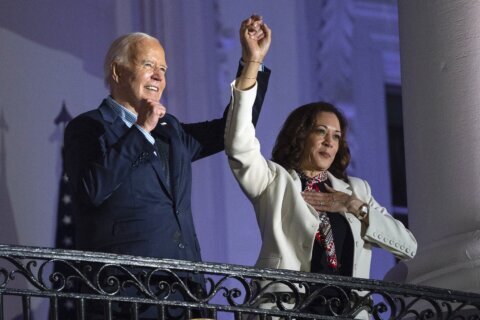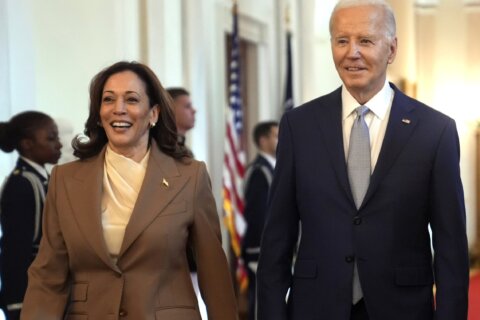After receiving primary applications, most medical schools ask applicants to complete a secondary application, which typically includes additional essay questions. While primary essay prompts ask why you’re pursuing medicine, medical school secondary essays focus on you and how you fit with a specific school.
Secondary essay prompts vary by school, but they’re generally designed to help med schools learn about you at a deeper level. They may ask you to reflect on what makes you who you are, a time when you worked with a population different than yourself, an occasion where you asked for help or a time when you worked in a team. They may ask how you spent a gap year before applying to medical school or what you did after your undergraduate degree.
“What we are trying to figure out is if this is a candidate that can fulfill the premedical competencies and whether they are mission-aligned,” says Dr. Wendy Jackson, associate dean for admissions at the University of Kentucky College of Medicine. “Can they help fulfill the needs that our institution is trying to deliver?”
A lot rides on these essays, but keeping a few best practices in mind can make the process less daunting.
Emphasize Fit
The first thing medical schools look for is whether an applicant will be a good fit for the school’s mission, Jackson says.
“I would challenge someone who is completing a secondary application to understand the mission of the school and envision how they are going to contribute to that,” she says. “The vast majority of schools are going to ask why you chose their institution, so you need to be prepared to answer that.”
[How Long Is Medical School and What Is It Like?]
Some secondary essay questions are optional, but experts recommend answering them even though they’re extra work. For example, the Vanderbilt University School of Medicine in Tennessee asks applicants what makes them interested in the school.
“We just want to see if they’re a good fit for us and that they’ve done a little bit of homework about Vanderbilt,” says Jennifer Kimble, director of admissions at Vanderbilt’s medical school. “We want to make sure that the students we admit are going to be happy with their Vanderbilt experience.”
Avoid focusing on what you’re going to gain from the school — schools are really asking how you’ll be an asset to the program.
“It’s almost like if you’re trying to date someone and you tell them, ‘Here’s what I’m going to get from this relationship,’ without saying, ‘We’re better off together,'” says Shirag Shemmassian, founder of Shemmassian Academic Consulting. “You have to sell the idea that you’re bettering one another and how you’re better together than apart. I think students often miss that latter component.”
Don’t Procrastinate
The medical school application process is often compared to a marathon, but the final steps may feel like a sprint. Applicants typically receive secondary application requests in late June, and in some cases schools want those back within a matter of weeks. Others set deadlines months down the road.
Either way, because of rolling admissions, it’s best to send essays in as early as possible without compromising quality, Shemmassian says.
The earlier an applicant submits materials, the less competition they typically face, experts say. For example, Vanderbilt receives nearly 7,000 applications per year. Of those, roughly 600 applicants will be asked to interview and around 260 will be offered admission for 96 spots.
“At the beginning of the cycle, our calendar is wide open and we’re very open to who we bring in for an interview,” Kimble says. “Down the road when we only have 30 seats left, it’s highly selective who those candidates are that get those coveted 30 interview spots that are left over.”
Prewrite Essays
Applicants won’t know the specific language of secondary essay prompts until schools send them, but in many cases, essay prompts are similar year to year and the previous year’s prompts are often published on a school’s admissions website, experts say. Some schools may change or tweak questions, but you can generally get a head start by prewriting essays based on previous prompts.
“As the new ones come out, you can modify as needed,” Shemmassian says. “I would say that about 70% to 80% of prompts will remain the same or similar. If they change, you can usually adapt an essay you’ve written for another school.”
Secondary essays vary in length and number. Vanderbilt requires applicants to submit an 800-word essay and two 600-word essays. Some schools may require close to 10 secondary essays. Shemmassian says this is significantly more writing than applicants are used to, so budgeting time is crucial.
But applicants should take care when prewriting essays and make sure each is tailored to the specific school with the correct school name, experts say. Jackson says she’s read plenty of essays where applicants included the wrong school name and it cost them.
“You may think you can save time by cutting and pasting or taking half of a previously written essay response and making a modification,” Jackson says. “Be careful, because the questions vary from institution to institution.”
Experts say applicants often neglect to fully read prompts in their haste to complete answers. Though there’s a time crunch, it’s vital to thoroughly read the prompt and answer the question fully without grammatical or spelling errors.
“That seems kind of silly, but I think we can get going down a road when we’re writing and feel like we’ve completed and written something well but look back and never really have a response to the true question being asked,” Jackson says.
Be Authentic
Medical school applicants tend to put a lot of pressure on themselves to write something that schools haven’t read before, Kimble says. Given that med schools sift through thousands of applicants a year, “we’ve read all sorts of scenarios in life, so take that pressure and put it on the shelf,” she says. “That’s not a concern for us. We aren’t looking for something that’s totally innovative.”
Experts say schools are mostly looking for authenticity and an organic, genuine tone. The tone “can make or break an applicant,” Jackson says.
[How Medical Schools Are Improving Access for Underrepresented Minorities]
It may be tempting, especially given time constraints, to rely on outside help — such as ChatGPT or other AI-powered software — to write essays. While some professors and admissions officers have embraced AI to help automate certain processes, Kimble says she strongly discourages med school applicants from using AI to help with secondary essays.
“We had an (application) that you could clearly see was not written by a human voice,” she says. “It sounded very computer generated, so we ended up passing on the candidate just because we want to hear their story in their own words.”
A Secondary Essay Example
Shemmassian compiles more than 1,000 sample secondary essays each year, using prompts from more than 150 medical schools in various states, and offers them to paying clients. The excerpted example below, created by Shemmassian’s team and used with their permission, shows what he considers to be a successful diversity-themed essay in response to a Yale University School of Medicine prompt that asks applicants to reflect on how their background and experiences contribute to the school’s focus on diversity and how it will inform their future role as a doctor.
As a child, one of my favorite times of the year was the summer, when I would travel to Yemen… at least until I turned twelve. Suddenly, the traditional and, in my Yemeni American view, restrictive laws for women, applied to me. Perhaps the most representative of these laws was having to cover my hair with a scarf-like garment. Staying true to my values, I decided against returning to Yemen, thereby losing a vital connection to my culture. However, this estrangement did not inhibit my growth.
The 500-word response continues with how the applicant met a Yemeni student who grew up in France and was barred from wearing a headscarf due to a school uniform policy. Where the applicant saw the headscarf as restrictive, the other student saw it as a connection to her roots. The applicant describes how although the same object held different meanings to two people from the same background, she used that to appreciate different perspectives and to advocate for a woman’s right to express herself.
Later that year, I applied this lesson in perspective to my work as a clinical coordinator, when a patient walked into the office and handed me a piece of paper explaining she only spoke Arabic…By thinking critically while vernacularly translating the doctor’s advice, I was directly involved in the process of her medical care. Because of my experience in exploring the multi-cultural barriers I faced alongside the Yemeni French student who cherished her headscarf, I spent time talking to this Yemeni patient about the barriers she had faced in receiving care.
This experience motivated me to help overcome cultural healthcare barriers and disparities, showcasing my devotion to equitable treatment by creating a new protocol within the clinic where I work. Now, when scheduling patients over the phone, we ask if they have any language preferences, and we have a series of scripts we can use during each patient’s treatment.
The applicant then drives home why she believes she’s a good fit for the school.
My background and experiences will contribute to Yale School of Medicine’s diversity and inform my future role as a physician by creating a student organization that holds informational workshops, utilizing my unique experiences to connect with Yale’s diverse patient population, and working to address healthcare disparities as a future physician. I envision these informational workshops would operate in the Haven Free Clinic patient waiting rooms to empower all patients, regardless of their background.
This essay is successful because it does more than tell essay readers about the applicant’s background, Shemmassian says. It shows how the applicant grew “into a more compassionate and culturally humble future physician who will help patients overcome health care barriers.”
“Strong diversity essays will always show admissions committees how a unique trait or life experience will help them become a better physician,” he says. “This essay is especially successful because the applicant connects their experiences and what they’ve learned because of them to the Yale School of Medicine itself. This is an applicant who is already thinking deeply about not just what they can get out of medical school but how they can contribute to the values and mission of the school they attend.”
Searching for a medical school? Get our complete rankings of Best Medical Schools.
More from U.S. News
How to Deal With Medical School Rejection
Why It’s Still Hard to Get Into Medical School Despite a Doctor Shortage
How Hard Is Medical School and What Is the Med School Curriculum?
Secondary Medical School Application Essays: How to Shine originally appeared on usnews.com







